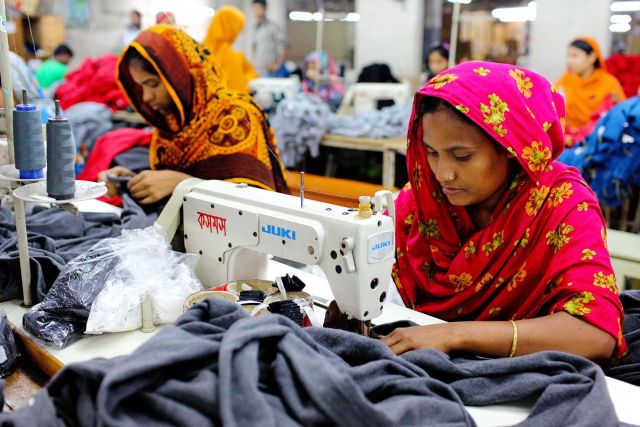
When you think of Western capitalism and imperialism, what usually comes to mind are aggressive superpowers such as the US, Britain, France or Germany. Northern European nations such as Norway, Denmark, Finland and Sweden, on the other hand, are seen as good-natured and insular, often used as examples of the way governments around the world should treat their citizens.
There is no denying that their policies at home are more progressive than, say, the US. But, in large part, this is due to strong unions and decades of struggles to win such rights. Scandinavian workers have won policies that guarantee basic social safety in healthcare, education, employment and housing.
However, amid a worsening refugee crisis, Denmark, Norway and Sweden are not presenting themselves as welcoming nations for those fleeing war and poverty.
In the 2016 presidential debates, socialist candidate Bernie Sanders pointed to them as model nations that the US should “learn” from. But a close examination of the region will demonstrate that Scandinavia largely maintains its wealth through violent imperialist policies, just like other Western nations.
In 2008, Norwegian communications multinational, Telenor — partly owned by the state — was exposed for partnering with a Bangladeshi supplier that employed child labour in horrendous conditions.
A report revealed that the children were made to handle chemical substances without protection and one worker died after falling into a pool of acid. The plant also ruined the crops of farmers in the surrounding area with the waste it produced.
Like other Western multinationals that deliberately go to the developing world looking to save money on labour and operating costs, the company washed its hands of the accusations — denying knowledge about its partner’s inhumane practices.
Similarly, Norwegian oil and gas company Statoil, also partly owned by the state, has been involved in multiple corruption cases around the world — especially in underdeveloped countries — where they have bribed state companies and government officials to obtain licenses for extraction.
Their involvement is not only limited to these aggressive economic practices, Scandinavian nations are also deeply involved in the West’s military exploits. Norway dropped 588 bombs on Libya, but is scarcely mentioned as being part of these imperialist operations. Statoil has since started joint extractions operations worth millions in the ruined country.
Sweden’s foreign policy record is no better. Technology firms like Saab, BAE Systems and Bofors compete with the US and Israel in their development of a large variety of weapons that are sold to 55 countries around the world in deals worth billions. It seems that Sweden, like its Norwegian neighbour, actively participates in denying human rights to millions across the globe, especially in underdeveloped nations.
The Swedish clothing giant H&M can sell affordable products in rich nations and make huge profits only because it exploits and underpays workers in impoverished nations such as Bangladesh.
As John Smith points out in his book Imperialism in the Twenty-First Century, only €0.95 of the final sale price of an H&M T-shirt remains in Bangladesh to cover the cost of the factory, the workers, the suppliers and the government. The remaining €3.54 goes for taxes and transportation in the market country, with the bulk going to the retailer.
In other words, Western nations capture most of the profit, although it is the poor workers and nations that have put in most of the labour and resources.
The Danish-British firm G4S is the world’s largest security company and is known for its long list of controversies. It has supplied services to Israeli prisons and checkpoints, and been accused of mistreatment of immigrants in detention centres. It has also played a huge role in protecting Western imperialist interests, such as oil refineries and the territory around the Dakota Access pipeline on Native American land in the US.
However, since Britain is known as the most aggressive of the two nations, the Danish component is frequently swept under the rug, despite the fact they were the founders and developers of the company.
It is no surprise then that the Nobel Peace Prize, which was founded in Sweden and based in Norway, has given known war-mongers such as President Barack Obama and Colombian President Manuel Santos, among others, the award.
The “Nordic Model”, as it has come to be known, is hardly a system that we should look to for inspiration. No model, system, or structure that depends on the exploitation and domination of others can be ethical. Western nations and their people — if they are to be taken seriously by the struggling world — must begin to think about developing socialist political and economic structures that are internationalist and, crucially, anti-imperialist at their foundations.
The social gains won by Western nations cannot and should not be made at the expense of exploited nations and people in the Global South. This social-imperialist dynamic seen in Scandinavian nations will ultimately fail in the long-run as it is harming for more people than it is benefiting.
[Abridged from TeleSUR English.]
Like the article? Subscribe to Green Left now! You can also like us on Facebook and follow us on Twitter.